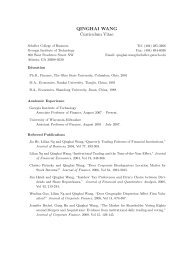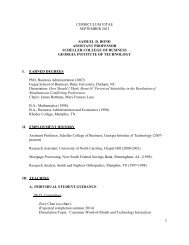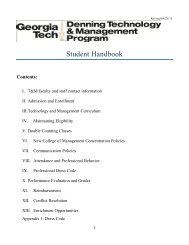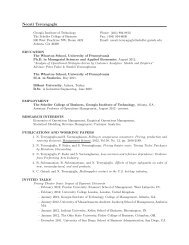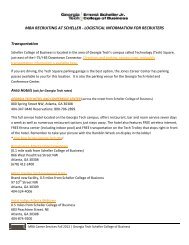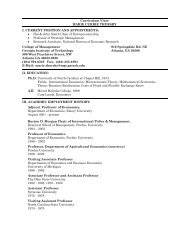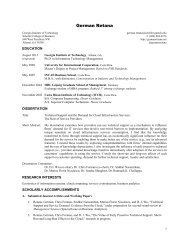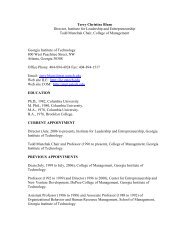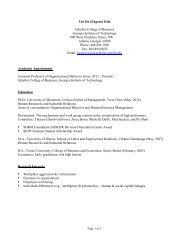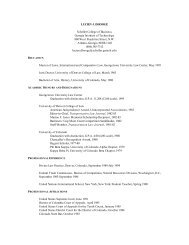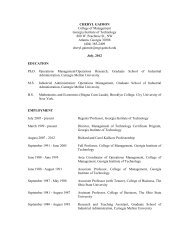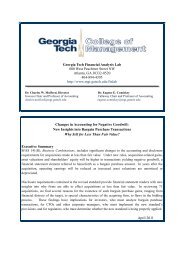Mars-Venus Marriages: Culture and Cross-Border M&A
Mars-Venus Marriages: Culture and Cross-Border M&A
Mars-Venus Marriages: Culture and Cross-Border M&A
Create successful ePaper yourself
Turn your PDF publications into a flip-book with our unique Google optimized e-Paper software.
We find that acquiring firms on an average earn significant positive abnormal returns.<br />
The three-day CAR ([-1, 1]) is 0.71% <strong>and</strong> is significant at the 1% level. However, the results<br />
for other longer announcement windows [(-40, 5), (-40 to +1), (-1 to +5)]) are not statistically<br />
significant. Next, we try to explain the cross-sectional variation in the short-term returns using<br />
deal-specific variables, country-level economic variables, <strong>and</strong> the measures of cultural<br />
distance.<br />
We present seven models in Table 7 as in the previous tables for the long-run returns.<br />
We replicate Table 5, including year <strong>and</strong> target country fixed-effects, but use the short-term<br />
cumulative abnormal returns as the dependent variable instead of BHAR. Interestingly<br />
enough, the measures of cultural difference seem to have the opposite impact on the shortterm<br />
announcement returns than in the long-term return., The significance of both Hofstede<br />
distance as well as language dummy suggest that markets actually value “culturally closer”<br />
cross-border M&As higher, only to be proven wrong in time.<br />
6. CONCLUSIONS<br />
We investigate the effect of cultural distance on long-term (<strong>and</strong> short-term) performance of<br />
cross-border M&A. Our results show that acquisitions perform better in the long-run if the<br />
acquirer <strong>and</strong> the target come from countries that are culturally more disparate. This is, in fact,<br />
opposite to the market reaction in the “announcement effect”.<br />
Among the determinants of long-term performance of acquirers’ stock returns,<br />
cultural differences emerge as an economically significant beneficial factor. The positive<br />
impact of cultural differences is not captured in the announcement period returns. The impact<br />
of culture remains after controlling for several deal-specific, economic <strong>and</strong> corporate<br />
governance variables, country fixed effects <strong>and</strong> is robust to alternative specifications <strong>and</strong><br />
horizons of long-term performance. Among deal characteristics, friendly deals <strong>and</strong> cash<br />
acquisitions do better in the long-run. We also find some evidence of synergies that can be<br />
derived when acquiring firms from strong economic systems acquire targets in systems with<br />
22



